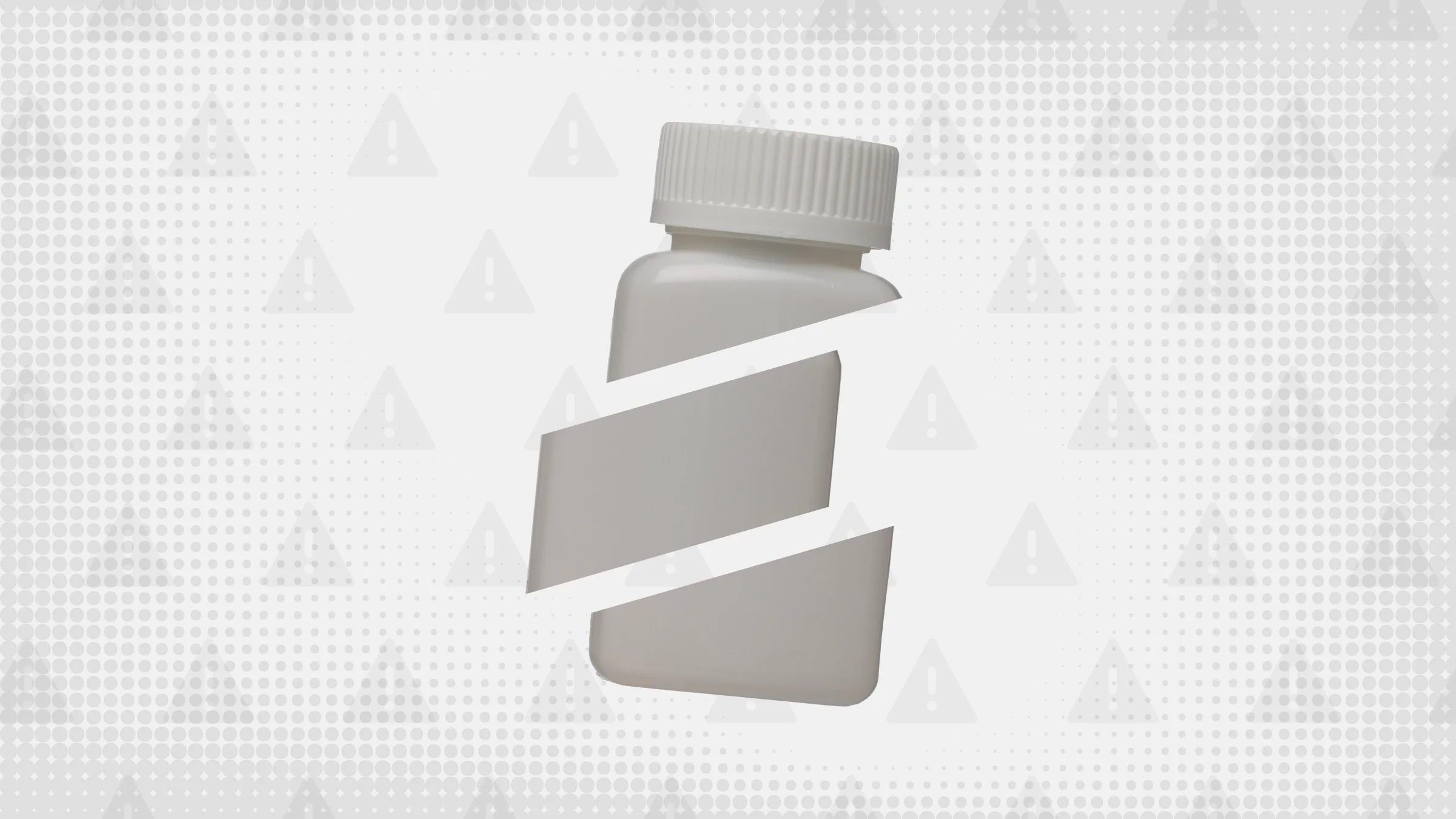Key takeaways:
Jakafi (ruxolitinib) is a prescription medication that treats myelofibrosis and polycythemia vera in adults. It also treats graft-versus-host disease in people ages 12 and older. It’s a type of Janus kinase (JAK) inhibitor.
Common Jakafi side effects include diarrhea, headache, and high cholesterol. You can generally manage these side effects at home. But your healthcare professional can provide additional support when needed.
Rare but serious Jakafi side effects include heart attack or stroke, blood clots, and a higher risk of certain types of cancer. Your healthcare professional will consider these risks before prescribing Jakafi.
Save on related medications
Jakafi (ruxolitinib) is an oral Janus kinase (JAK) inhibitor. It’s FDA approved to treat rare blood cancers called myelofibrosis and polycythemia vera (PV) in adults. It’s also used to treat graft-versus-host disease (GvHD) in people ages 12 years and older.
When prescribed for myelofibrosis and PV, Jakafi works by blocking overactive Janus kinases — immune proteins that are telling blood cells to grow and divide too fast. With GvHD, Jakafi calms down the immune system, resulting in less inflammation.
Jakafi is effective for many people who take it. But like other JAK inhibitors, Jakafi has many possible side effects. Most are mild and manageable, but serious complications are also possible. If you’ve been prescribed Jakafi, knowing what side effects to watch for is helpful.
Jakafi side effects at a glance
Many of Jakafi’s side effects are mild and can be managed at home. Others are more serious and may require medical attention.
The most common Jakafi side effects include:
Lower blood cell counts
Higher liver enzyme levels
Diarrhea
Headache
Bruising
High cholesterol
Dizziness
Muscle pain or spasms
Less common but potentially serious Jakafi risks include:
Severe infection
Heart problems
Blood clots
Trouble breathing
Increased risk of certain cancers
Here, we’ll dive into seven notable Jakafi side effects and how to manage them. But keep in mind that the likelihood of certain side effects may vary depending on what you’re taking Jakafi for.
1. Changes to your lab work
You may have changes to your blood cell counts while taking Jakafi. These include low red blood cells (cells that carry oxygen from the lungs to the rest of the body) and hemoglobin (a protein inside red blood cells that holds onto the oxygen). These changes increase your risk for anemia.
Jakafi can also lower your platelets (cells that help stop bleeding) and white blood cells (cells that help fight infection). This increases your risk for bruising and infection, respectively. Talk with your healthcare professional right away if you notice unexplained large or frequent bruising or bruises that don’t improve over time. They can either reassure you that there’s nothing to be concerned about or recommend additional blood tests.
Jakafi can also increase your liver enzyme levels. Liver enzymes are proteins that help the liver do its job. When these enzymes increase, there may be a problem with the liver.
Your comparison guide: Pharmacists describe the different JAK inhibitor medications and when healthcare professionals may prescribe them.
Are JAK inhibitors biologics? No, JAK inhibitors aren’t biologic medications. Here’s what makes them unique.
What’s next? Learn about the many JAK inhibitors currently being studied in clinical trials.
Your healthcare professional will likely analyze your bloodwork before starting Jakafi and every 2 to 4 weeks while you’re taking it, depending on your blood counts. If your blood counts ever become critically out of range, they may lower your Jakafi dose or recommend that you stop taking it — for a short time or altogether.
2. Increased risk of infection
Jakafi can lower your body’s ability to fight infections. Infections from bacteria and viruses were occasionally reported in Jakafi’s clinical trials. Serious infections, including tuberculosis, herpes, and shingles, are also possible.
It’s important to let your healthcare professional know if you have any signs or symptoms of an infection before starting Jakafi or while taking it — even if they feel minor. These symptoms include fever, chills, or a sore throat. You generally shouldn’t take Jakafi if you have an active infection.
3. Diarrhea
Diarrhea is a more common Jakafi side effect. You can manage mild diarrhea at home.
Temporary diet changes can go a long way in coping with milder cases of diarrhea. Try to avoid spicy, greasy, and fried foods — especially while your symptoms are active. Avoid high-fiber foods, too, such as beans, oatmeal, and broccoli, since they can cause gas and make you feel worse. Try to prioritize bland foods such as bananas, rice, and applesauce. Other bland foods include toast, saltine crackers, and eggs. These should be gentler on your stomach.
It’s also important to stay hydrated with water and electrolyte drinks if you have persistent diarrhea. This helps prevent dehydration.
Over-the-counter (OTC) antidiarrheal medications, such as loperamide (Imodium A-D), may help manage your symptoms in the short term, but check with a healthcare professional before trying one. They can tell you if it’s safe for you to take. They may also recommend a different treatment if your diarrhea lasts longer than 2 days or you have a fever or bloody stools.
4. Headache
You may have headaches while taking Jakafi. Again, mild headaches can be managed at home.
Simple lifestyle changes, such as getting enough sleep, drinking enough water, and regularly exercising, may help. Reducing stress through meditation and breathing exercises may also provide relief (when possible). Limiting your alcohol and caffeine intake is another good step for headache relief.
If headaches become hard to manage, ask your pharmacist for an OTC headache medication recommendation. If your headache is more severe, your healthcare professional may lower your Jakafi dosage or suggest taking a prescription medication to help manage headaches.
5. High cholesterol
In Jakafi’s clinical studies, some people taking the medication developed high cholesterol. But researchers aren’t sure if cholesterol changes related to Jakafi significantly affect the risk of heart disease.
To be safe, your healthcare professional will likely check your cholesterol before prescribing Jakafi and every 8 to 12 weeks while you’re taking it. Cutting back on ultra-processed foods, exercising a few times per week, and working toward your target body weight are good ways to lower your cholesterol.
If your cholesterol levels remain high, your prescriber may recommend taking a cholesterol-lowering medication.
6. Heart problems
Blood clots in your veins, arteries, and lungs are possible while taking Jakafi. And some people who have taken JAK inhibitors for rheumatoid arthritis have experienced rare but serious heart problems, including heart attack and stroke.
These risks haven’t been reported with Jakafi specifically. However, since JAK inhibitors like Jakafi work similarly, they can’t be ruled out. Your healthcare professional will carefully consider your risk for heart problems before prescribing you Jakafi. Depending on the risk, they may recommend a different medication.
Good to know: Redness, warmth, or pain in your leg or arm may signal a blood clot. Trouble breathing, chest pain, or weakness on one side of the body could mean that you have a blood clot in your brain or lungs. If you experience any of these symptoms, call 911 or go to the nearest emergency room.
7. Certain cancers
An increased risk of certain cancers is another rare possibility with Jakafi. In clinical studies, occasional cases of lymphoma were observed in people taking other JAK inhibitors. This risk is higher for people who smoke or have smoked in the past.
Certain types of skin cancer have also been reported in people taking Jakafi. It’s a good idea to regularly check your skin while taking it, and to contact a dermatologist if you notice any unusual skin changes.
The bottom line
Jakafi (ruxolitinib) side effects, such as diarrhea, headache, and high cholesterol, are often manageable at home. But it’s best to contact your healthcare professional right away if you develop symptoms of an infection or any other bothersome side effects.
Rare but serious side effects include a higher risk of heart attack or stroke, blood clots, and certain types of cancer. While several of these rare side effects haven’t been reported with Jakafi specifically, they’ve been occasionally seen with other JAK inhibitors.

Why trust our experts?



References
Incyte Corporation. (2023). Jakafi - ruxolitinib tablet [package insert]. DailyMed.
Leukemia & Lymphoma Society. (n.d.). Graft-versus-host disease.
Leukemia & Lymphoma Society. (n.d.). Lymphoma.







